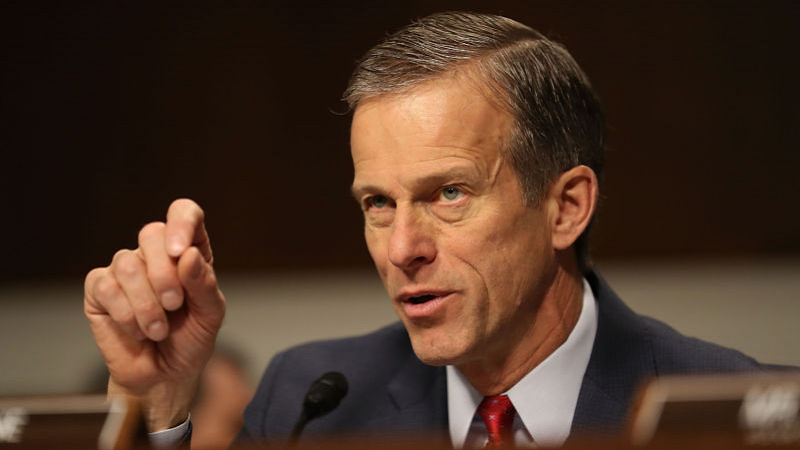
Leadership of the Senate Commerce, Science, and Transportation Committee on Wednesday pressed the head of the National Telecommunications and Information Administration (NTIA) for necessary follow-up to passage earlier this year of the MOBILE NOW Act.
The law requires NTIA and the Federal Communications Commission (FCC) to find by 2020 at least 255 megahertz of spectrum now reserved for Federal government and nongovernment use, and to make the spectrum available on licensed and unlicensed bases for mobile and fixed wireless broadband use.
Committee Chairman John Thune, R-S.D., and Ranking Member Bill Nelson, D-Fla., who sponsored the MOBILE NOW Act, emphasized the need for NTIA to capitalize on the legislation.
While Thune praised the work NTIA has already done to implement provisions of MOBILE NOW Act, he said the law is not a panacea to the country’s broadband woes, but rather a “down payment” to the goal of improving broadband availability.
“Earlier this year, NTIA took a good first step and announced that it has identified 100 megahertz of spectrum–the 3450 to 3550 megahertz band–for potential repurposing for commercial wireless innovation,” Thune said during his opening statement. “I am glad to see NTIA move so quickly on a priority outlined in MOBILE NOW. But as I have stated many times, MOBILE NOW was just a down payment.”
Thune explained that freeing up spectrum–which MOBILE NOW will do–is just a first step. Next, NTIA needs to identify areas of the country struggling with a lack of broadband access.
“Knowing what parts of the country are unserved and prioritizing deployment in those areas is crucial to closing the digital divide,” he said, adding, “Mapping broadband availability relies on the quality of broadband data.”
David Redl, administrator of NTIA, agreed that compiling accurate service availability data is essential for bringing broadband to underserved areas.
“My experiences have shown me that if we want to have a coherent policy for bringing broadband to rural and hard-to-reach areas, we need accurate, reliable data analysis to properly inform private sector decisions, reduce regulatory barriers, and better coordinate Federal programs that fund broadband infrastructure,” he said.
Redl touched on specific activities NTIA has undertaken to improve access in rural communities.
“NTIA continues to respond to the need for technical services and broadband leadership efforts by partnering with unserved and underserved communities, so that they can attract new business investments and spur economic growth,” he said. “NTIA’s strategy capitalizes on strong relationships with broadband providers, state and local organizations, businesses, non-profit organizations, foundations, and other Federal stakeholders.”
Thune also touched on FirstNet, the nationwide public safety broadband network, and the oversight role NTIA will have in the deployment and operation of the network.
“I am interested to hear what oversight efforts NTIA is conducting to ensure FirstNet meets its deployment and adoption goals throughout the country to safeguard the speedy and efficient deployment of this network, especially in rural and hard-to-reach areas,” Thune said, adding, “Our first responders deserve nothing less.”
Redl updated the committee on how NTIA is exercising its oversight powers on FirstNet, and also raised concerns about long-term funding for NTIA’s FirstNet oversight and support.
“[W]e have successfully implemented our process for our annual review and approval of FirstNet’s fees, which will bolster our monitoring and oversight of FirstNet’s long-term funding stability,” he said. “Both FirstNet and NTIA, as part of the Department of Commerce, will continue to ensure openness and transparency as FirstNet builds out its network. In addition, it should be noted that NTIA’s dedicated funding for its FirstNet oversight and support functions will end in 2022. I look forward to working with you and the Department to address how NTIA’s funding for such activities over the longer term can be met.”
